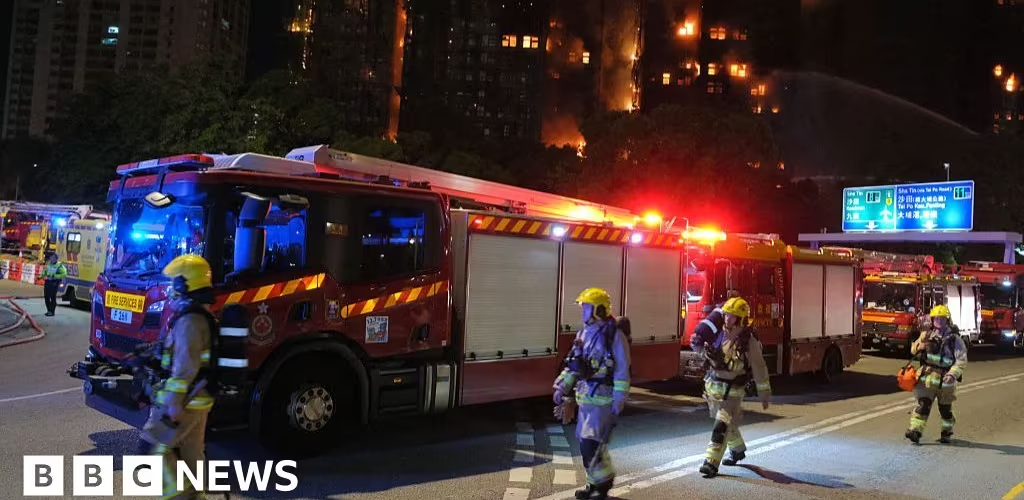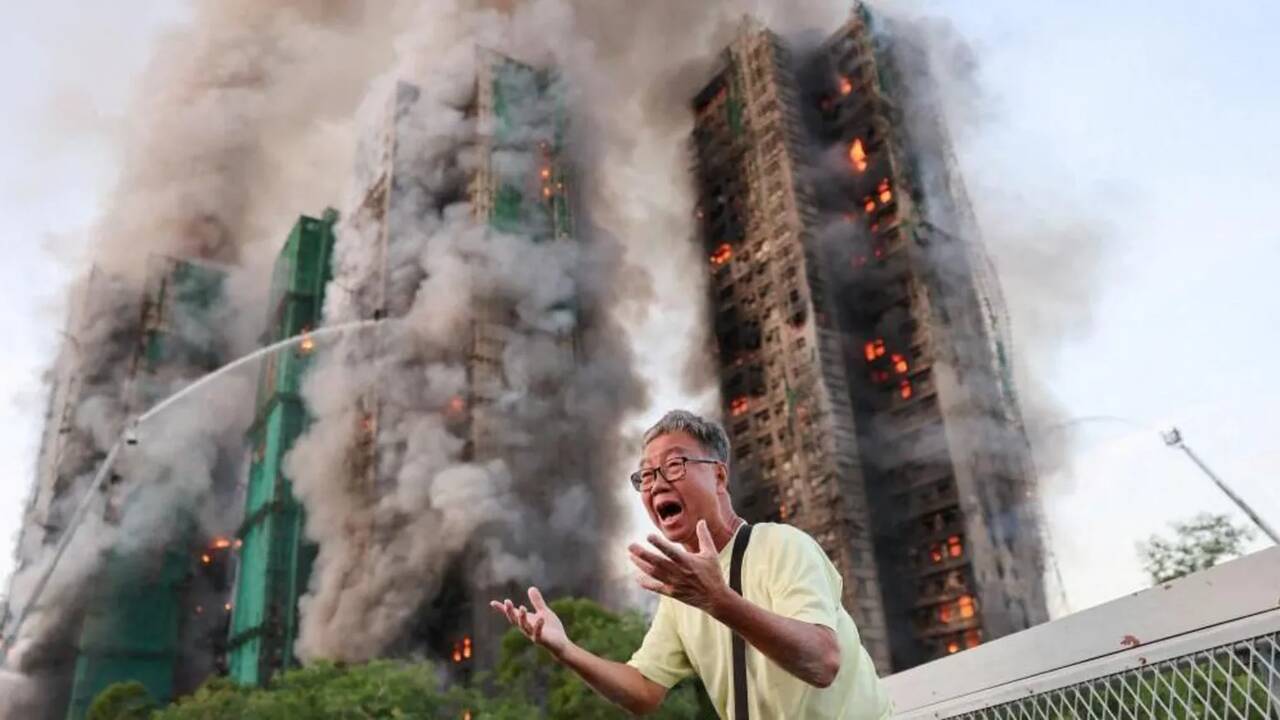What we know about the Hong Kong apartment fires
BBC | 26.11.2025 20:02
A devastating fire has ripped through several high-rise tower blocks in Hong Kong, killing at least 13 people and injuring 15 more.
Pictures show several buildings ablaze, and thick smoke billowing into the air, dominating Hong Kong's skyline.
As night fell on the island, the fire was still burning, hours after it was first reported, with 767 firefighters deployed to the scene.
What caused the blaze is still unclear, but here is what we do know, so far.
Where and when did the fire start?
The blaze broke out at Wang Fuk Court, a large housing complex in Hong Kong's Tai Po district, at 14:51 local time on Wednesday (06:51 GMT).
Wang Fuk Court consists of eight tower blocks, which are each 31-storeys high.
They provide 1,984 apartments for some 4,600 residents, according to the 2021 government census.
Built in 1983, The tower blocks were undergoing renovations, and the outside of the buildings was covered in bamboo scaffolding. Footage shows the fire spreading quickly through the bamboo.
How serious is the fire?
The Hong Kong fire department has classified the blaze as a level five alarm - the highest in severity.
Within 40 minutes of first being reported, it was declared a level four, but by 18:22, about three-and-a-half hours later, the level was raised again.
It has been 17 years since a level five fire last hit Hong Kong.
Residents fear the fire will burn all night - and early evening pictures from the scene showed the buildings still alight.
What do we know about the victims?
The Hong Kong government first announced that at least four people had been killed, but then the death toll rose dramatically to 13. There are fears that number could increase further, because several people are still missing.
Of those 13, nine were declared dead at the scene, Chou Wing-yin of the Fire Services Department said.
At Wednesday night's news conference, the number of those injured was revised down to 15 people, after it was initially put at 28.
Among the dead is a firefighter, Ho Wai-ho, 37, who had been with the service at Sha Tin Fire Station for nine years.
The fire service said it lost contact with him at 15:30, and about half an hour later, found that he had collapsed. He was taken to hospital, but was declared dead shortly after.
"I am profoundly grieved at the loss of this dedicated and gallant fireman," Andy Yeung, director of the fire service said in a statement.
At least one other firefighter is in hospital, the Hong Kong fire service said.
Watch: Deadly fire engulfs Hong Kong apartment blocks
Emergency hotline and shelters set up
Wang Fuk Court is home to some 4,600 residents, and there has been a mass evacuation in the area, including nearby buildings that are not part of the complex.
Several emergency shelters have been set up to accommodate residents who were evacuated, the government said.
BBC Chinese reporter Gemini Cheng saw elderly residents, some using walking sticks or wheelchairs, arriving at some of the shelters. Coaches will later transfer them to community halls which will remain open overnight to accommodate those displaced by the fire.
An emergency monitoring and support centre is in operation to manage the impact of the fire, security secretary Tang Ping-keung said in a statement.
A hotline for the public to ask about casualties has been set up by Hong Kong police - the number is +852 1878 999.
Hong Kong and bamboo scaffolding

The tower blocks at Wang Fuk Court are covered in bamboo scaffolding, right up to the rooftops, because they are undergoing renovations.
Bamboo scaffolding has been used in Hong Kong for centuries, because it grows quickly, is lightweight and very strong. Many see it as an iconic part of the city's urban landscape - but Hong Kong is one of the world's last remaining cities to use it in modern construction.
Local media reports in March said the government's development bureau had been trying to phase out the use of bamboo because of safety concerns. The push towards using metal instead of bamboo came after a spate of scaffolding related deaths in Hong Kong.
Bamboo scaffolds have "intrinsic weaknesses such as variation in mechanical properties, deterioration over time and high combustibility, etc, giving rise to safety concerns", the bureau's spokesperson Terence Lam was quoted as saying.
The cause of this fire is still unclear, however authorities noted that it seems to have spread quickly - and to neighbouring buildings - through the bamboo scaffolding.
Additional reporting by Jack Lau, BBC Global China Unit and Gemini Cheng, BBC Chinese in Hong Kong.









